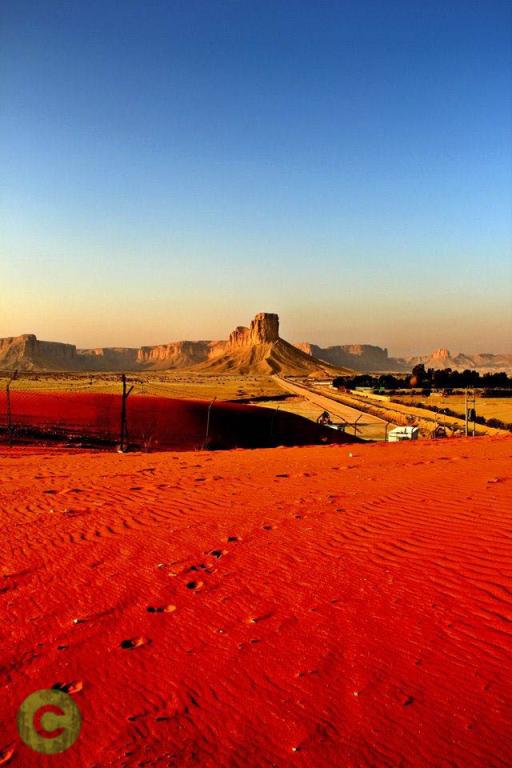
(Wikimedia Commons public domain)
When the Jewish exiles returned from their Babylonian captivity and, under the leadership of Nehemiah, began to rebuild Jerusalem, they found Arabs among those who sought to hinder them.[1] These may have been the Nabateans, who were the only northern Arabians to establish a civilization comparable to that of South Arabia in the period before Islam. (In fact, some think that the Nabateans were actually of South Arabian origin; trading colonies from the south are well known in the north during this and earlier periods.) When the Nabateans first appeared in history, they were still nomads. However, by the fourth century B.C. they had managed to take the ancient city of Sela away from the Edomites. This would become Petra, the famous city carved in the red rocks of what is today the Hashemite Kingdom of Jordan.[2] From this, their capital, they would build up a kingdom that stretched from the Red Sea to a point beyond Damascus, penetrating deeply into Arabia itself.
The first recorded king of the Nabateans bore the name or title of Harethath I, and many of his successors bore the same name or title, which seems to be the same as the modern Arabic name Harith. Harethath IV, who ruled from 9 B.C. to 40 A.D., is called Aretas in the King James New Testament and plays a role in the story of the apostle Pau1.[3] (And that apostle, it will be remembered, fled into “Arabia” immediately after his miraculous conversion on the road to Damascus.)[4] The Arabians present at Jerusalem on the day of Pentecost were apparently Jews from some Nabatean settlement.[5]
The society of Arabia in the period immediately before the rise of Islam was tribal and egalitarian. What the latter term means is that everybody was on virtually the same level. On the same level of bare survival, one might say in some cases. (The famous Arabian wealth, so frequently mentioned in the Bible, was probably enjoyed by only a few in the earliest days and then only by those on the fringes of Arabia who came into frequent contact with settled peoples who were willing to pay high prices for the goods they brought.) The chief loyalty of any Arab was to his tribe. In some ways, in fact, it was his only loyalty. It was much like the kind of patriotism that says “My country, right or wrong.” Thus, the poet Durayd ibn Simma once said of his tribe, Ghaziyya,
I am of Ghaziyya: if she be in error, then I will err; And if Ghaziyya be guided right, I go right with her.[6]
Apart from devotion to one’s tribe, the virtues most highly prized among the Arabians before Islam included bravery in battle, patience in misfortune, persistence in revenge, protection of the weak, defiance of the strong, and honor and generosity. These are often called the “heroic virtues,” and they aren’t far different from the virtues extolled by other societies—Homeric Greece, for example—at a similar stage of development.
The idea of protecting the weak also frequently led to an attitude toward women that could be called “chivalrous.” Pre-Islamic Arabian women inspired poets to sing and warriors to fight and, indeed, were often present at battles.[7] (Some will remember the scene in the film Lawrence of Arabia where, as the army rides out to fight, the women, perched high up on the walls of a narrow valley, give out their characteristic loud trill—the technical term for it is ululation—urging the men on to heroic battle.) R. A. Nicholson may be right when he declares that “the chivalry of the [European] Middle Ages is, perhaps, ultimately traceable to heathen Arabia.” If so, it probably entered into Europe via the Muslim occupation of Spain, which lasted from the early 700s to 1492. “Knight-errantry, the riding forth on horseback in search of adventures, the rescue of captive maidens, the succour rendered everywhere to women in adversity—these were essentially Arabian ideas, as was the very name of chivalry, the connection of honourable conduct with the horse-rider, the man of noble blood, the cavalier.”[8]
[1] Nehemiah 2:19; 4:7; 6:1-6.
[2] Some readers will have seen Petra in the film Indiana Jones and the Last Crusade, where it appears (under a different name) as the repository of the Holy Grail.
[3] 2 Corinthians 11:32.
[4] Galatians 1:17.
[5] Acts 2:11.
[6] Cited by Reynold A. Nicholson, A Literary History of the Arabs (Cambridge: Cambridge University Press, 1962), 83.
[7] Sometimes, women themselves composed poetry. Several prominent examples of this are known from pre-Islamic Arabia. Their specialty was elegiac poetry the poetry of mourning and lament. This is because, in their society, ostentatious mourning was first and foremost a woman’s job. In many areas of the Middle East, I can testify from firsthand observation, it still is.
[8] Nicholson, A Literary History of the Arabs, 88. The Arabic word furusiyya, which primarily means “horsemanship,” can also mean “chivalry,” “knighthood,” “heroism,” and “valor.” The same connection between horsemanship and a certain noble kind of behavior is made, of course, in various languages of western Europe. We speak of “chivalry,” “cavalry,” “caballeros,” and “a cavalier attitude.”












